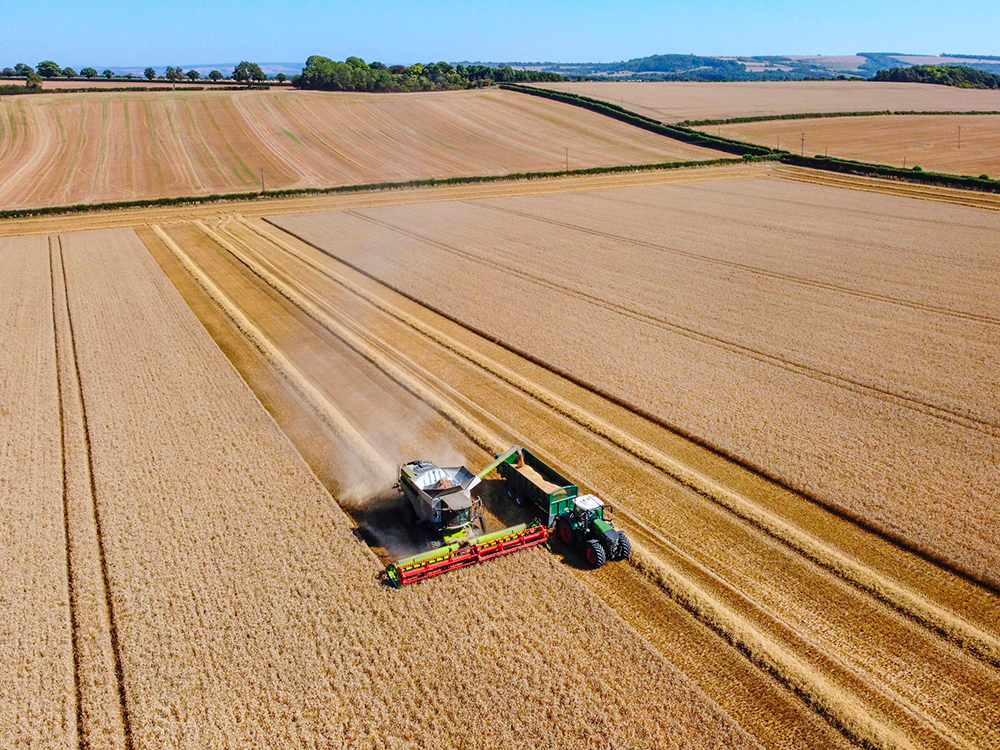Britain’s farmers are in a bind. Despite sitting on land worth millions, they are unable to release that wealth without selling – and many struggle to make money from what they produce. According to Defra, almost one in five farms make a loss, while a quarter made less than £25,000 last year. Yet there are parts of the Labour movement that see farmers as money-grubbing, tweed-clad elites benefiting from special tax breaks and hefty subsidies.
James Buckle, a farmer from Suffolk, understands those frustrations: ‘If our farm is worth £10 million, and we’ve got these new inheritance tax rules, we’ve got to pay something like £1.6 million to pass it on. And £10 million is a ridiculous value for an asset that one person owns. It’s why we’re not going to get the general public crying for us. The problem is, when you start talking about capital numbers, it’s all huge. But actually, we just don’t make any money from it.’
Farming is notorious for its high costs and low profits. Gavin Lane is indeed a tweed-clad farmer from Norfolk. ‘I was gobsmacked by the inheritance tax changes,’ he says. ‘I thought this Labour government cared about growth. Most of us are looking at a return on capital of less than 1 per cent. Paying for these new taxes out of revenue is basically impossible for most of us. This Budget is anti-growth and it’s very anti-rural.’
The new rules mean farmers’ children will be taxed not just on the value of the land, but also the value of machinery and properties. Why buy a new combine harvester or build a farm shop if you know your offspring may soon have to pay a large chunk of the cost to the Exchequer? The result will be slower growth in the countryside.
But while Labour’s inheritance tax changes are bad news for the family farm, they may end up helping the countryside and farmers in the long run. How? By taking the heat out of Britain’s land market. In 2000 the average price of arable land was £2,600 per acre. Now it’s more than £10,000 and rising rapidly. And investors have fuelled the growth: last year, 44 per cent of farmland was bought by investors while less than half went to actual farmers. The result is that it’s almost impossible for small family farms to expand. It also means weird things are happening in agricultural tax policy. According to the Centre for the Analysis of Taxation, of those estates that benefited from inheritance tax relief, just under half had no record of agricultural income in the five years before death. Another third received income primarily from rents. ‘I do know that in some inheritance cases, they’ve looked at agreements where a claimant has actually been more of a landlord than a farmer,’ says Edward Barker, also a Suffolk farmer. ‘They paid a contractor to do the work, or contractors paid them a fee or something like that, and the agreement was really a tenancy.’ In other words, a tax break designed to protect the family farm was helping people who are pricing farmers out of the market.
I spoke to one Midlands landowner who asked not to be named. ‘The truth is wealthy financiers, hedge funds and bankers have been exploiting the agricultural property relief loophole for decades as a way of passing on their wealth,’ he says. ‘As a result of the tax loophole, land prices have gone up much faster than London property prices. Most farmers borrow to buy anything that comes up in what is essentially a gold rush for land. Many rural communities are sighing with relief that farmers won’t find it so easy to extort £100,000 out of them for a paddock. Nobody can afford to buy land in the countryside other than very wealthy farmers and financiers. Hopefully that might change.’
James Buckle agrees. ‘Ideally land prices will fall by 30 per cent next week. I don’t want to sell my land and none of us want to pay that much tax. In an ideal world, land just would not be worth what it is.’ While Labour’s inheritance tax plans are awful for the minority of claimants that are actual farmers, it’s no bad thing that these plans also hit the speculators, many of whom choose rewilding or solar over farming because the subsidies are guaranteed. So who knows – maybe with the speculators gone, farmers won’t have to pay quite so much tax after all.
Watch more on SpectatorTV:









Comments